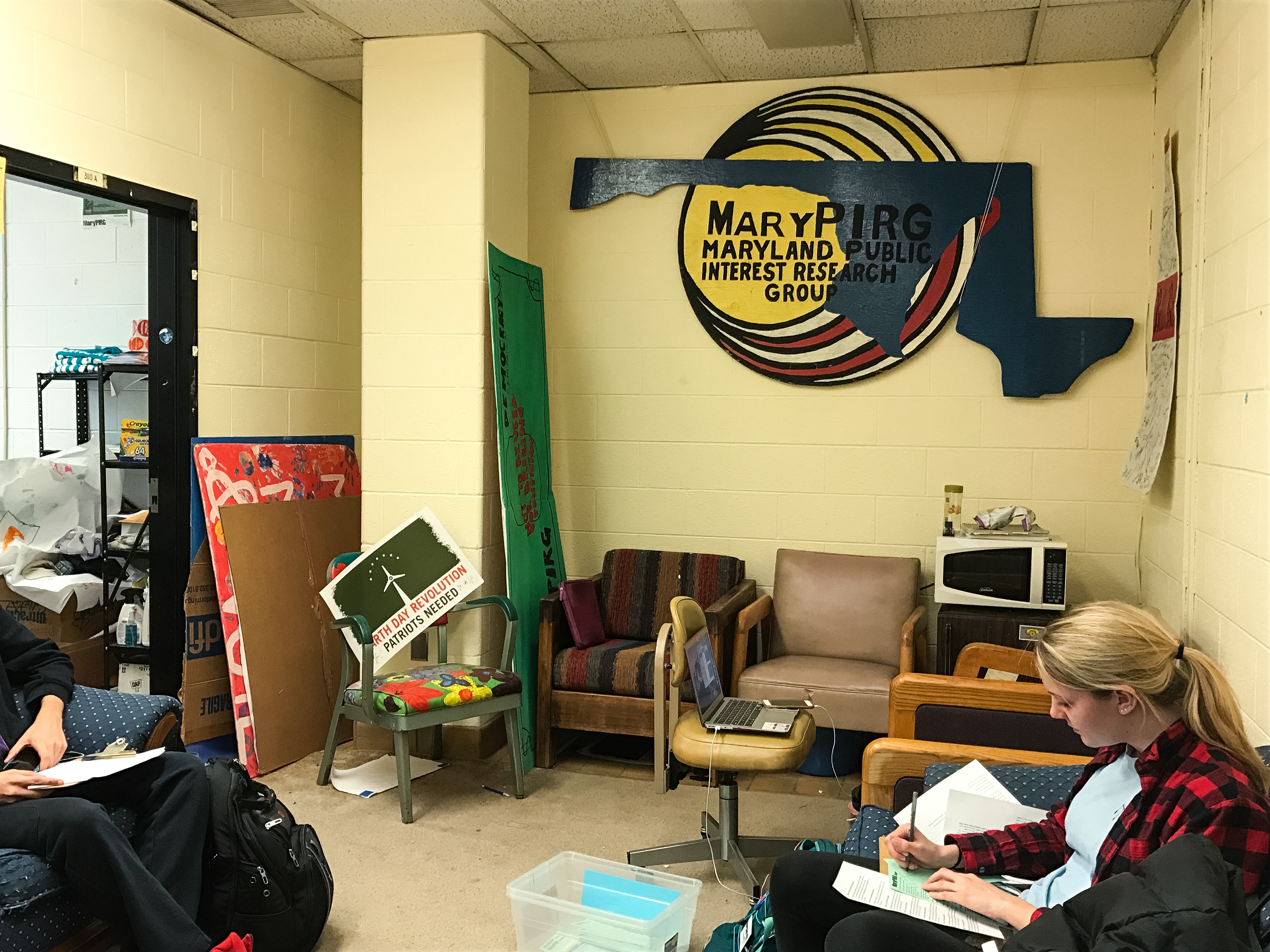With the state of Maryland’s fracking ban almost expired, University of Maryland MaryPIRG members are building a coalition of partners to garner support to propose legislation that would permanently ban fracking in this state.
Hydraulic fracturing, also known as fracking, involves injecting high-pressure water, sand and chemicals deep into an underground well to crack shale rock, which releases the natural gas stored inside. In May 2015, the Maryland General Assembly passed a bill that created a two-and-a-half year moratorium on fracking in the state — a bill that is set to expire in October.
MaryPIRG plans to lobby state lawmakers with other student groups, such as the Student Government Association’s Student Sustainability Committee, and larger organizations like the Chesapeake Climate Action Network to create a law that would ban fracking permanently, citing the risks it may pose to the environment and human health, said Sara Carter, the organization’s president.
Opponents of the drilling method claim fracking is linked to drinking water contamination, air pollution, earthquakes and other health and environmental risks. A 2016 EPA report found that fracking can “impact drinking water resources under some circumstances,” and that groundwater contamination is more likely when spills, improper injections, low water availability and improper disposal occur during the fracking process.
MaryPIRG and the SGA sustainability committee plan to hold events to educate students on the campus about the issue so they can make more informed decisions, said Willem Klajbor, a sustainability committee member.
MaryPIRG also plans to organize a group of students to attend a March anti-fracking rally in Annapolis, said Devorah Stavisky, MaryPIRG’s fracking ban campaign coordinator. The Chesapeake Climate Action Network, which has worked to create a coalition of more than 100 organizations working together to ban the drilling method, will host and provide shuttles to the event.
“Our strategy is focused on harnessing all of the energy and the passion that exists on campus to support sustainable efforts in Maryland,” said Stavisky, a sophomore sociology major. “We can really use that to show just how many constituents in Maryland and how many students from the flagship university of [Gov.] Larry Hogan’s state support a ban on fracking.”
Hogan has voiced his support for fracking in the past, touting the potential economic benefits it could bring to western Maryland. Allowing fracking in that region, which has slower economic growth and higher unemployment rates than the rest of the state, could generate more than 3,000 jobs, according to a 2014 Towson University study.
“We understand that natural gas is a lucrative business,” said Klajbor, a junior environmental science and policy and economics major. “We just don’t see the consequences being worth it in the long run, as far as water usage [and] as far as human health impacts.”
If Hogan decides to veto a proposed bill, MaryPIRG may “move the target” to extend the moratorium instead, said Carter, a junior government and politics major.
Public opinion appears to favor the coalition’s goals. About 60 percent of Marylanders oppose fracking, according to a 2016 Washington Post poll.
“This issue is too important for students on campus not to get educated about and make [their] voices heard,” Klajbor said. “In the end, we’re the ones that are inheriting the beautiful state of Maryland and this country. …It’s going to be up to us where we get our energy and how that’s going to affect our state and our people.”
CORRECTION: An earlier version of this story incorrectly stated that MaryPIRG plans to shuttle students to and from an anti-fracking rally. The Chesapeake Climate Action Network will provide shuttles to the rally for students. This story has been updated.



